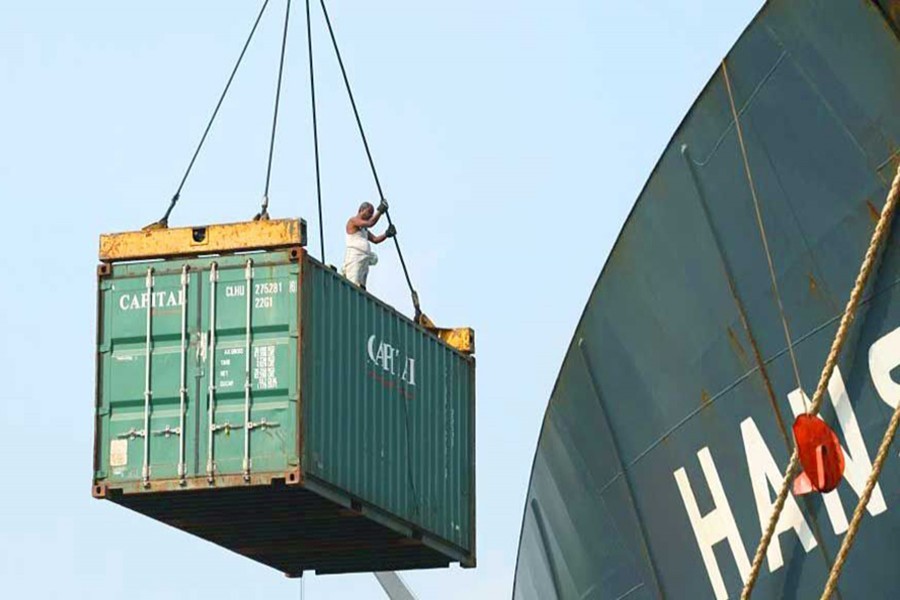Bangladesh examined the viability of striking free trade agreements (FTAs) with nearly two and a half dozen countries in the last decade, but it did not sign a single deal.
Officials concerned have attributed the non-signing of any deal to the absence of a clear sense of direction involving the issue.
Feasibility studies on possible FTAs with countries like Japan, ASEAN members including Thailand, Malaysia, the Philippines, Myanmar and Indonesia, the US, Canada, members of MERCOSUR, GCC, Eurasian Economic Union, South Korea, Turkey, Sri Lanka, Jordan, Bhutan, Mauritius, Australia, Nigeria, Mali and Macedonia.
The Bangladesh Trade and Tariff Commission (BTTC) did these studies at the instruction of the commerce ministry.
In most cases, studies were carried out without taking into consideration whether those countries have any significant trade with Bangladesh or whether they will be interested in signing any FTAs with Bangladesh.
According to the relevant officials, Bangladesh did not even place formal proposals to those countries showing its interest in holding discussions on the possibility of striking FTAs.
"No concrete target for FTAs is set so far. You have to decide first why and with whom you want to sign the agreement," said a senior trade official involved in the process.
"Conducting wholesale feasibility (studies) is a useless exercise. First, we have to find out which countries are interested in signing FTAs with us and then we should go for carrying out studies," he added.
The government also needs to set the objective of signing FTAs first.
According to officials, Bangladesh is yet to formally start negotiations with any country on signing the FTA.
Only in 2019, the government formed a trade negotiation committee, headed by an additional secretary of commerce ministry, to hold any future FTA talks.
After exchanging FTA-related documents several times, Bangladesh in early 2020 requested Malaysia to start negotiations for an FTA but did not receive any positive response until now.
With Sri Lanka, Bangladesh's talks are still at a preliminary stage and the country is yet to start a formal negotiation on such a deal.
The plan to sign FTAs with other countries is still confined to holding feasibility studies.
A study of General Economics Division under the Planning Commission shows in the post-LDC era, Bangladesh will lose most of the international support measures (ISMs) and face severe competition thereafter.
"Not surprisingly, the biggest source of loss would come from the withdrawal of trade-related ISMs. The preferential access to markets at zero or very low tariffs has been a big boost for Bangladesh exports," it said.
The study suggested inking trade agreements with countries and major trade blocs to offset possible financial losses from the withdrawal of the ISMs.
Centre for Policy Dialogue research director Dr Khondaker Golam Moazzem said the issue of signing of FTAs so far has not received that much importance to the government, politically.
Even the main stakeholder, the private sector, is not in favour of FTAs, he told the FE on Friday.
"As a result, without the active participation of the main stakeholder, it has become very tough for the government alone to materialise the plan."
According to Dr Moazzem, the government needs to attach due importance to FTA issue in the strategic plans that it is now preparing for Bangladesh's post-graduation period.
"Besides, the FTA should become an important issue for the government," he suggested.
Dr Moazzem said the prime minister's office (PMO) should play a proactive role and also engage the foreign ministry in the execution of the plans.
The PMO should decide first which countries the government really wants to sign FTAs with in the next 10 years or so, he observed.
Later, the foreign ministry can start diplomatic efforts to advance it because signing an FTA is a matter of political decision first. Diplomatic and technical matters follow, Dr Moazzem added.
syful-islam@outlook.com


